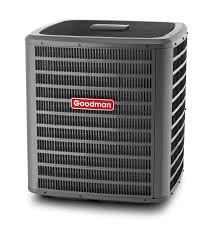 Top Class Action Lawsuits
Top Class Action Lawsuits
Not a Fair Trade? Here’s one that nearly slipped under the radar…Scottrade, the discount brokerage service, is facing a data breach class action lawsuit filed by a woman in Florida who claims the personal and financial information of herself and potential millions of others has been compromised as a result of the breach.
Filed by Angela Martin, individually and for all others similarly situated, the Scottrade lawsuit states Scottrade’s failure to protect and adopt adequate security, best practices and industry standards regarding data security and retention, has resulted in millions of customers’ sensitive personal and financial information being compromised.
Scottrade currently operates an online trading website, which was hacked over the course of several months from late 2013 to early 2014, the complaint states.
Further, the lawsuit states that Scottrade itself estimated nearly 4.6 million customers have been affected by the data breach. However, the company has only bgan notifying customers of the data breach in October, but its notice is deficient and fails to fully explain the nature and cause of the breach.
The lawsuit claims breach of express and implied contract, violation of consumer fraud laws of multiple states, and negligence. The lawsuit is Tampa Division of the Middle District of Florida Case number 8:15-CV-02791-SCB-EAJ.
General Motors being Generally Dishonest? Maybe just a little bit? Yes—according to a nationwide consumer fraud class action lawsuit filed in California federal court this week, alleging the auto maker promoted two types of pickup trucks that don’t live up to their advertised towing capacity.
According to the GM pickup lawsuit, filed by Richard Quintero who drives a GMC Sierra, at the end of 2014 the auto maker alerted owners of 2014 GMC Sierra 1500 Series and Chevrolet Silverado 1500 pickup trucks across the country that GM had miscalculated the trucks’ towing capacities and that the actual amount they could tow was about 2,000 pounds less than advertised.
“Had plaintiff and class members known the 2014 GMC Sierra’s and the 2014 Chevrolet Silverado’s actual towing capability at the time of purchase, and the safety hazard posed by towing loads in excess of a vehicle’s capacity, they would not have bought the class vehicles or would have paid much less for them,” Quintero states in the complaint.
Quintero accuses GM of breach of express warranty, negligent misrepresentation and of violating California consumer protection laws and seeks to represent all owners and lessees of the two truck models.
Quintero states in the complaint that he visited his local GMC dealership in California during the summer of 2013, originally intending to buy a 2013 Sierra. However, the complaint notes, after learning about the purportedly superior towing capacity of the 2014 model, Quintero purchased the newer, more expensive truck.
The complaint notes that Quintero owned a 5,000 pound trailer, which he used to haul a 1,000 pound golf cart. But, after seeing GM advertisements that said his new truck could haul 8,800 pounds, he decided to upgrade and bought a new 6,700 pound trailer to haul the cart.
After he bought the trailer, Quintero got the letter from GM telling him his truck could only pull 6,700 pounds, not enough capacity to tow the new trailer with the golf cart inside, the complaint states.
“This towing capacity reduction followed uniform and pervasive representations to the contrary from defendant to plaintiff and class members,” Quintero states. “Prior to GM’s precipitous recalculation, GM expressly and repeatedly touted the towing capacity of class vehicles, and its representatives confirmed that towing capacity is a material, and often dispositive, consideration for pickup truck consumers.”
The case is Quintero v. General Motors Company et al., case number 5:15-cv-02530, in the U.S. District Court for the Central District of California.
Top Settlements
They owe, they owe—it’s to the bank you go!!! Well, if the settlement deal is approved. A preliminary $11 million settlement has been reached between AlliedBarton and a class of workers who filed an employment lawsuit against the security services company alleging it failed to provide meal and rest breaks, to pay adequate wages and did provide inaccurate wage statements, in violation of California labor law.
According to the terms of the AlliedBarton settlement, each of the three named plaintiffs would receive $30,000 in service payments. The approximately 43,893 non-exempt hourly employees who worked for AlliedBarton in California from April 2004 through January 2015 would share the net settlement amount on a prorated basis, based on the number of weeks they worked, according to the proposed deal.
The lawsuit was filed by lead plaintiff Gregory Dynabursky in 2012 on behalf of thousands of security officers, alleging that AlliedBarton violated California labor and business laws by requiring guards to perform work duties during meal breaks. He also asserts that the workers had to sign a related on-duty meal period agreement.
The case is Gregory Dynabursky et al. v. AlliedBarton Security Services LP et al., case number 8:12-cv-02210, in the U.S. District Court for the Central District of California.
Ok—That’s a wrap folks… Happy Friday…See you at the Bar!

